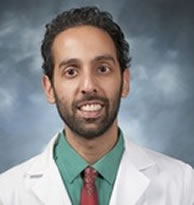articles
Failure of Medical Stress Tests
By: Sajid Khan, MD and Maryam Arshad, MD
Tel: 913-271-4142
Email Dr. Khan
View Profile on Experts.com.
When evaluating a patient, we rely on a good history to help us form a differential diagnosis. We use our physical exam skills to refine that list. A bedside ultrasound or ECG can further guide our decision-making and save precious time. Beyond these, we rely on seemingly failsafe data: radiographs, blood tests, and urine samples. But sometimes these reliable tests aren't so reliable.
The CDC reports that sensitivity of a rapid flu test ranges from 50-70%. Urine pregnancy tests can be negative for up to several weeks following successful conception. The heterophile antibody test (Monospot test) may be negative early in the course of EBV infectious mononucleosis.
Accepting that there is some innate inadequacy in many of the tests we perform is necessary. So what then, do we do about patients who present with chest pain and a recent negative stress test?
Approximately 20% of lawsuits are due to misdiagnosis and mismanagement of acute coronary syndrome (ACS). The gold standard for diagnosis of CAD is a heart catheterization (coronary angiogram). It's invasive, costly, and carries some risk of bleeding and contrast nephropathy. Stress tests on the other hand are non-invasive and painless. This explains why most patients receive a stress test.
The goal of a stress test is to identify a fixed obstruction to coronary blood flow. This is great in patients experiencing stable angina. But in ACS the underlying pathology is 'plaque rupture' and thrombus formation. Plaques that have a fibrous covering, lipid core, and inflammatory cells are more unstable and likely to rupture. Most of these plaques obstruct less than 60% of the lumen. Stress testing may not diagnose these non-obstructing yet still dangerous plaques, making reliance on a negative test potentially fraught with complication.
The mistake most providers make is relying on a stress test for risk stratification. A blinded review of over 45,000 encounters found that with two negative troponin tests and a non-ischemic ECG, the primary outcome of 'adverse cardiac event' occurred in only 0.18% of admissions. In other words, patients don't necessarily need a stress test to be labeled as low-risk for adverse events.
A trial published in JAMA randomized diabetics without known CAD to either have or not have a stress test at baseline. After five years, an identical number of subjects in each group of the study had suffered heart attacks or death. In other words, being screened for heart disease with a nuclear stress test did not reduce cardiac events or deaths - the tests didn't help people.
One study looked at 164 patients who presented to the ED with chest pain that had a negative stress test within three years. Of these patients, 20.7% had CAD, 8 of whom had CAD within one month of their negative stress test (!). The authors concluded: "Due to inadequate sensitivity, negative non-invasive cardiac stress tests should not be used to rule out CAD. Patients with negative stress tests are just as likely to have CAD as patients with inconclusive stress tests".
Dr. Sajid Khan, MD, is a board-certified Emergency Medicine physician with over 10 years of experience working in a variety of settings from inner-city level 1 trauma centers serving 100,000 patients per year to 3-bed rural Eds. A published author, Dr. Khan has written a number of books including, The Ultimate Emergency Medicine Guide, a comprehensive review book that is the highest-rated and most up-to-date text for Emergency Medicine physicians preparing to certify.
Dr. Maryam Ashadcompleted her EM residency at Emory University and is the author of Medical Ethics 101.
©Copyright - All Rights Reserved
DO NOT REPRODUCE WITHOUT WRITTEN PERMISSION BY AUTHOR.


